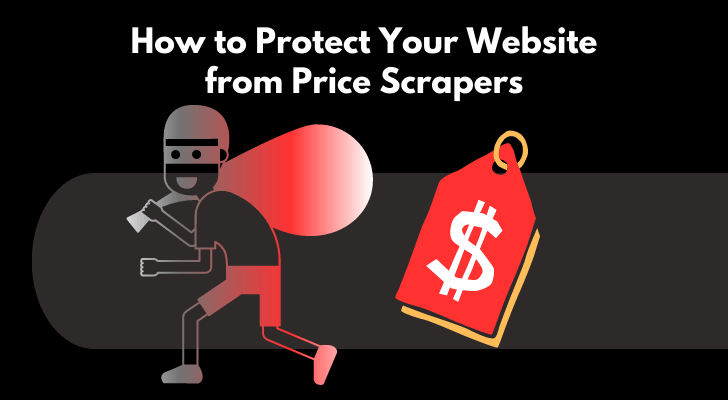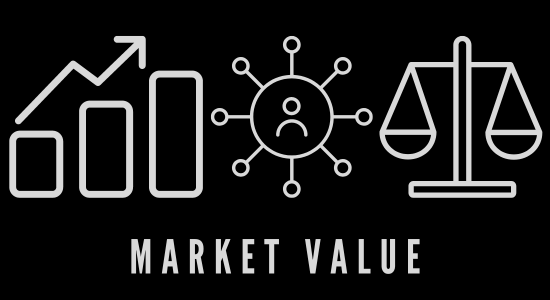It’s ridiculous how competitors steal prices and undercut in the market each other. If you think you’re constantly interrupted, then it’s time to seriously think about protecting your website from price scrapers.
If left undetected, it can lead to significant financial losses for businesses. If you are an e-commerce owner and don’t know the implication of it, I will explain what price scraping is, how it works and the potential impact on your business. You will also learn legal implications, detection methods and prevention techniques.
There’s also a case study involving Amazon vs. a price scraper, so you’ll know why relying on price scraping as a business model is unsustainable. So buckle up and let's get started!

What are Price Scrapers?
Price scraping is a common tactic used by sneaky competitors to steal pricing data from websites, allowing them to set lower prices and steal customers. Price scrapers, also known as web scraping bots, are automated programs or tools that extract data from websites.
Specifically, they target pricing information on e-commerce sites and compare it to other stores in order to set competitive prices. These bots can scan hundreds of pages per minute and collect vast amounts of pricing data.
Price scrapers operate by sending requests through HTTP protocols directly to the website's servers without any human interaction involved. They simulate user activity with the help of proxies so that no one knows which IP address is being used for accessing the server. They represent a serious threat to businesses operating online due to their ability to quickly gather large amounts of sensitive information about products' prices and availability on various platforms.
How Does Price Scraping Work?
These scraping bots work by using algorithms to navigate through website pages and scrape the required data. They mimic human behavior by browsing through different categories and filtering products based on specific criteria. Once they find the relevant information, they store it in their database for further analysis or use.
They can scan thousands of websites in a matter of minutes and retrieve data such as prices, descriptions, images, and reviews. They’re usually programmed to run at regular intervals to keep the scraped data updated. The frequency of these updates depends on factors like competition intensity or market trends.
Some price scrapers even have built-in anti-blocking mechanisms that enable them to bypass security measures put in place by website owners such as CAPTCHAs or IP blocking systems.
What is the Impact of Price Scraping?
Price scraping has a significant impact on businesses, particularly those involved in e-commerce.
Unfair Advantage
By scraping product prices from websites, competitors can gain an unfair advantage by undercutting their prices and stealing sales. This leads to lower revenue for the targeted business and a loss of customer trust.
Distorted Market Values
Price scraping contributes to distorted market values since it creates an environment where pricing is not based on market forces but rather on what the scraper sets as its benchmark. It can also lead to fraudulent activities such as phishing scams using scraped data that end up defrauding customers.

Slow Down The Sites
The scrapers put a strain on website resources resulting in slower load times during high traffic periods or even causing site crashes which ultimately affect user experience and drive potential customers away from your website.
The Quality of Competition
When businesses spend time trying to combat price scraping instead of focusing on growth strategies like innovation or R&D (research & development), they are forced into playing defense rather than offense against their competition.
The impact of price scraping is far-reaching; affecting brand reputation, and competitive landscape and potentially compromising customer security. As such it's important for businesses to detect and take measures against this practice while exploring ways in which they can stay ahead of competitors without resorting to unethical tactics themselves.
Understanding the Legal Implications of Price Scraping
Price Scraping is an unethical practice but understanding how it works is paramount for protecting your business against its harmful effects.
Automatically extracting pricing information from competitors’ websites without their consent means that it can lead to copyright infringement and violation of intellectual property rights.
In general, price scraping violates a website’s terms and conditions as well as its copyrights. Websites are also protected by federal laws like the Computer Fraud and Abuse Act (CFAA), which prohibits unauthorized access to computer systems.
Price scrapers may also violate state laws such as anti-spam statutes or unfair competition regulations that protect businesses against deceptive practices designed to gain an unfair advantage in the marketplace.
If a company finds evidence of price scraping, it has grounds for legal action under common law principles including misappropriation or conversion. This means they can sue for damages caused by lost sales due to inaccurate pricing information on their site.
So any e-commerce owner needs to take proactive measures against price scrapers since ignorance won’t prevent them from getting into trouble with authorities. Monitoring web traffic regularly can help identify potential threats early on before they escalate into more significant problems.
How to Detect and Prevent Price Scraping
Detecting and preventing price scraping can be a challenging task, no doubt. But here are the steps that you can take to protect your site from this malicious activity to start with.
Monitoring
Monitor your website traffic regularly to identify any unusual spikes in activity. Price scrapers tend to generate high levels of traffic within a short period of time. You may also notice an increase in the number of requests made by a single IP address.
Anti-Scraping Tools
Use anti-scraping tools or services such as CAPTCHAs and web application firewalls (WAFs). These tools help prevent automated bots from accessing sensitive information on your website.
Data Transformation Techniques
Implement data transformation techniques such as encryption or tokenization. This process protects critical data by making it unreadable and unusable to unauthorized users.
Encryption
Encryption is the process of converting data into a code or cipher that is unreadable without a key or password. The encrypted data is then transmitted or stored, and can only be accessed by someone with the key or password to decrypt it. Encryption can be used for various purposes, such as protecting data stored on a computer, securing communications between two parties, or protecting financial transactions.
Tokenization
Tokenization involves replacing sensitive data with a non-sensitive value. The token can be used in place of the original data for certain purposes, such as storing credit card information or identifying a user in a system. The original data is stored securely in a separate location, and can only be accessed by authorized parties.
Here are some software solutions that offer tokenization as a service, including:
- Braintree: A payment gateway that offers tokenization services for credit card information.
- TokenEx: A platform that allows businesses to tokenize any type of sensitive data, including payment information, personal data, and health information.
- CyberSource: A payment management platform that offers tokenization as one of its security features.
- Stripe: A payment processing platform that offers tokenization services for card data.
- Vaultize: An enterprise-level data protection platform that offers tokenization services for a wide range of data types.

User-Agent Detection
Consider implementing user-agent detection mechanisms that block suspicious user agents from accessing your site. User agents are pieces of code that identify the browser used by the visitor - legitimate browsers have defined user agent strings whereas bots often do not.
Some examples of user-agent detection software include:
- WURFL: A mobile device detection software that identifies the characteristics of a user's device, including the operating system, browser type, and screen size.
- DeviceAtlas: A device detection software that provides detailed information about a user's device, including its manufacturer, model, operating system, and browser.
- UserAgentString.com: A website that allows users to input their user agent string and provides information about the user's browser type, version, and operating system.
- UserAgentAnalyzer: An open-source library that provides user agent parsing and analysis functionality for web applications.
- BrowserStack: A cloud-based testing platform that allows developers to test their web applications on a wide range of browsers and devices.
By following these measures and investing in appropriate security technologies for your site, you can reduce the risk of falling victim to price-scraping attacks.
Case Study: Amazon vs. Price Scraper
In recent years, Amazon has been a victim of price scrapers stealing their product data and pricing information. These price-scraping bots would scrape Amazon's website to gather the pricing data of their products and use it for their own benefit. The result was that these competitors could undercut Amazon's prices on the same products.
To combat this issue, Amazon took legal action against one particular price scraper. In 2018, they sued a group of companies that were using automated bots to scrape pricing information from their website. This resulted in the shutdown of two websites owned by these companies.
Amazon also implemented various measures to prevent future price scraping attempts on its website. They made changes such as limiting access to certain pages from suspicious IP addresses and implementing CAPTCHAs for suspicious activities.
The case between Amazon and this particular price scraper highlights the importance of protecting your website against such malicious activity. By taking legal action and implementing preventative measures, businesses can ensure that they are not losing out on revenue due to competitors using unethical methods like price scraping.
Why Price Scraping is Not a Sustainable Business Model
You know by now that you shouldn’t even think about using a price scraper tool or anything of that kind. It may seem like an attractive option for businesses to gain a competitive edge, but it is not a sustainable business model in the long run. To summarize the reasons;
- It relies on unethical practices such as data theft and copyright violation which can lead to legal implications that could potentially harm the reputation of the company.
- Relying solely on price scraping can also result in inaccurate pricing information, leading to lost sales or reduced profit margins. Customers are becoming increasingly savvy and will quickly notice discrepancies between online prices and those advertised elsewhere.
- The tactics leave businesses vulnerable to changes in the market. Prices fluctuate regularly due to factors beyond anyone's control including supply chain disruptions, demand spikes or geopolitical events. Relying solely on scraped data means that any changes in market conditions will impact your pricing strategy negatively.
While price scraping may provide short-term benefits for some companies seeking quick returns on investment without spending much money upfront; however its unethical nature combined with inaccuracies and vulnerability makes it unsustainable over time as customers become savvier about comparing prices across different platforms.
How to Protect Your Website from Price Scrapers: Conclusion
It is important to protect your website from price scrapers in order to maintain your competitive edge and prevent loss of revenue. By understanding how price-scraping works, its impact on businesses, and the legal implications involved, you can take active steps towards detecting and preventing such activities. Using tools like web crawlers and IP blocking can go a long way in protecting your site from malicious bots.
Trust among customers is built by offering quality products at fair prices rather than through deceitful tactics like price scraping. Protecting your website from such activities ensures a level playing field for all competitors while safeguarding the integrity of your own business operations. Taking proactive measures today will ensure sustained success tomorrow.
What Do You Advocate?
